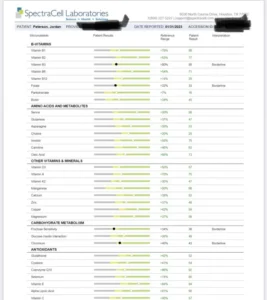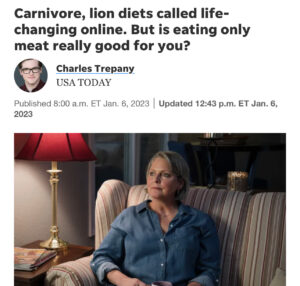Looking back on how I did my elimination diet, I can see a number of things I did wrong. This is a post describing how I would do an elimination diet now (pretty much what I’m doing now anyway).
This might seem extremely strict… and it is. Not much I can say about that except that it’s only a month, and you might be able to reintroduce most things back in right away. This is the diet that helped my dad, and I. I tried to do a less restrictive one with dad, but it wasn’t good enough.
I would do this if you are suffering from a number of the following symptoms:
– extreme fatigue (you nap every day)
– insomnia
– itchy skin
– skin problems (acne, rashes, etc)
– severe depression and/or anxiety – or other mental problems (OCD, schizophrenia, etc.)
– joint pain
– nerve pain
– muscle pain
– mouth ulcers
– bleeding gums
– digestive distress (stomach pain, bloating, constipation, diarrhea)
– GERD’s
– you’re overweight or you seem to gain weight easily and quickly in a bad way
– autoimmune disease/s
– you’re taking prescription medication long term (e.g. proton pump inhibitors)
– you’ve been prescribed antibiotics multiple times
– anything else I haven’t mentioned that really bothers you
or if you feel like you could feel better.
This beginning part will take you about a month to feel better. It took me 24 days. Keep on this strict diet for a month and then SLOWLY reintroduce foods to see how you feel (read more posts to see how to reintroduce foods).
What to be prepared for (warnings):
- you won’t eat out for at least month (you can’t cheat, and eating out takes practice when you’re restricted)
- if you’re not used to cooking, it’s going to be some work at the beginning but I have very simple recipes that take no time. (e.g. take chicken out of package, put in oven at 400 for 50 minutes, eat)
- your friends might think you’re weird
- people might be angry. (people are very attached to their foods. Even if someone else is changing their diet)
- buying meat and vegetables can seem more expensive but remember you’re not eating out
- you might (probably will) experience some withdrawal symptoms
- you might feel worse for the first 1-1.5 weeks (I didn’t, but some people do)
- some people who cut out dairy for even just a month end up becoming lactose intolerant. My strong belief is that dairy is terrible for you, and if you end up lactose intolerant, good, but that is something that might happen.
- If you suffer from anxiety and/or depression, and you reintroduce something that was giving you trouble, you might experience a significantly worse reaction than you have experienced before. By reaction, I mean a bout of brain fog and depression that is more intense than what you’ve been experiencing. I don’t know why this happens but it does sometimes. It did to me, my father and a couple of my friends. This is something to seriously think about. It’s avoidable, but it can be scary if you don’t realize what’s going on. These are IgG reactions and I’ll go into more detail about them later.
- If you mess up and eat something you’re not supposed to, you have to start again. You can’t do this for a week, and go out for a slice of pizza and then continue onto day 8 of the diet. After the slice of pizza you are at day 1 again.
- Chances are you will feel better by week 3. This is the best thing I’ve ever done. Cutting out foods was the best thing my family has done. If done properly, this can improve your life indescribably. I would recommend this to anyone but you have to be careful.
Step 1: If you can afford it, or even if you can’t really afford it, find a naturopath (or if you’re lucky a doctor) and do an IgG food sensitivity test. Try to get the one that tests for over 200 foods. This will set you back approx. 450$ in Canada but it’s worth it. This is most important for people with mental problems that they’re trying to control (but still important for everyone). This will save you a lot of pain and suffering down the road. I know it’s expensive but if you can do it, do it. Seriously. Skip your skepticism (unlike what I did), and do it. It’s also a test that is much more accurate when everything is still in your diet. That’s why it’s the first step.
Step 2: If you have your IgG results, avoid everything you score above 22 on. Some of them will show up as green and supposedly okay, but anything above 22 (I believe) is a no-no. Even if they’re on my list of okay foods, avoid them, everyone’s a bit different. I’d be surprised if they showed up on the foods that I’m okay with though. Most people with IgG responses have similar responses (showing that some foods aren’t good for anyone).
If you’re not going to do the IgG test (or if you have your results) get started on grocery shopping!
Step 3: Cooking – I’ll add some recipes tomorrow or tonight that are super easy. Literally so easy that someone who has never cooked couldn’t mess it up. They also take no time. They’ll be for 2 people (I would recommend cooking this much even if you’re alone so you don’t have to cook so often), or double them for 4 people. Always make more food than you think you need. If you’re used to snacking, this will help with the anxiety of feeling like you don’t have enough food. Here’s a sample menu for a week (coming soon – this weekend):
Step 4: Follow for a month. Do not cheat. Feel insanely improved by week 3-4.
Step 5: Very carefully start to reintroduce foods.





My wife and I have decided to go on this meat diet. I heard about you and your blog in one of your dads recent interviews on YouTube. I was fascinated by the results he described as related to himself and you.
My wife has been struggling with polycystic ovaries ever since her teens. We have been doing everything by the book and yet her hormones are always a mess. Last year we lost our first baby from extreme pre term birth at 22 weeks into pregnancy. It was really dreadful. We believe this might be related to carbs to a certain extent.
As Dr. Peterson said, human beings have been poisoning themselves with an excessively carb rich diet for a long time, it’s kind of how things have turned out.
Your story was an insight and an inspiration. We are really hopeful that in the end we can get her hormones fixed and have a new story to tell, a new life to live, I mean to say.
Dear Mikhaila,
I would be very happy to do the IgG tests but I am seeing a lot of scepticism about it. Can you possibly clarify how you found out they work because I really need to know the little money I have won’t be going to waste. Thanks! – Nadia
Hi mikhaila.
I am a diabetic type 1. And not only am I having a hard tiem controlling it, i have bad anxiety ( most of the time i can handle it but mahy times it feels like death is crawling up my body even though I know there’s nothing wrong ) I also have terrible stomach issues that for years have been trying to figure out what is wrong. So far, no answers. Even alcohol makes me feel sick the day after even if its only two drinks! ( Except for wine in moderate and i think tequila ) skin issues. Joint issues. The list goes kn. I came across your diet and I am soooo willing to try it. I don’t know where and how to start. Im was wondering where you get the vitamins and minerals that your missing from foods. Im assuming supplements? Also, the page of your grocery list says 404 not found. And there is no page on how you reintroduce foods. Can you give me some tips on how to go about this?
Controlling diabetes with the diet recommended by the US diabetes support organisations (and many of their counterparts around the world) will never work as those diets are way too high in carbohydrates (while claiming to be low carb, go figure).
I was constantly amazed at my mother (with type 2 diabetes) eating 6-10 slices of bread with jam each day, plus a big plate of potatoes or rice, and still holding firm that she was on a low carb diet because she drank only diet coke and skipped the cookies with the coffee.
I’ve type 2 myself, officially, but my blood sugar is almost normal (slightly elevated for a non-diabetic, normal for someone with type 2) for 9 months now without medication, using a real low carb diet (keto) alone.
I don’t drink alcohol, so can’t help there. Many low carb diets advise you to seriously reduce and if you can stop consuming alcohol though, as it can mess up your metabolism.
Given the shopping list here doesn’t work, here’s a keto diet related site to get started: https://www.dietdoctor.com/low-carb/keto/diet-plan It’s not the same as the zero-carb plan suggested here but it gives an idea and is probably easier to follow for someone with type 1. And you can always use it as a stepping stone and go more extreme at a later date if you want or need to.
Repeat: this is a different diet, linked as inspiration and to give some idea of what an ultra-low-carb diet can look like for the lack of similar local information here.
Basically: cut out all root vegetables, fruits, grain products (pasta, bread, rice, cakes, cookies, etc. etc.), potatoes, anything containing sugar or starch.
Many leafy vegetables are ok, especially lettuce varieties and spinach.
Meat, as desired, available, and to your taste. Mikhaila is far more restrictive still, especially cutting out all pork. I don’t know why she made that decision, it may be cultural for her or religious. For me, I couldn’t financially maintain my diet without pork as beef is WAY too expensive to eat more than once or twice a week, plus the locally available varieties of beef products are pretty slim pickings.
When selecting meats, favour more fatty cuts over leaner ones. Favour chicken with the skin as the skin holds most of the fat (also keeps the chicken more moist when cooking).
I don’t use any supplements myself, apart from in winter vitamin D pills as my body doesn’t produce enough of it.
As you do have type 1 diabetes, you should monitor your blood glucose levels very carefully, and will almost certainly find that you have to regularly adjust your insulin injections as your glucose levels are going to change a lot, probably go down rapidly in the beginning and flatten out at a far lower level than you’re shooting insulin for now.
Hi Mikhaila
I noticed that the link for “Grocery shopping on an elimination diet/list of foods” at the end of step 2 and the “Register” link at the top left of the webpages is broken. I wanted to let you know that so you can fix it 🙂
Hi Mikhaila! I am considering an elimination diet to try to help the depression and anxiety I have struggled with for a long time. My problem is that I have not eaten meat in 10 years. Even if I convince myself that I could eat meat to improve my health, will my igG test results be off because I haven’t eaten these foods in such a long time?
Leave a comment